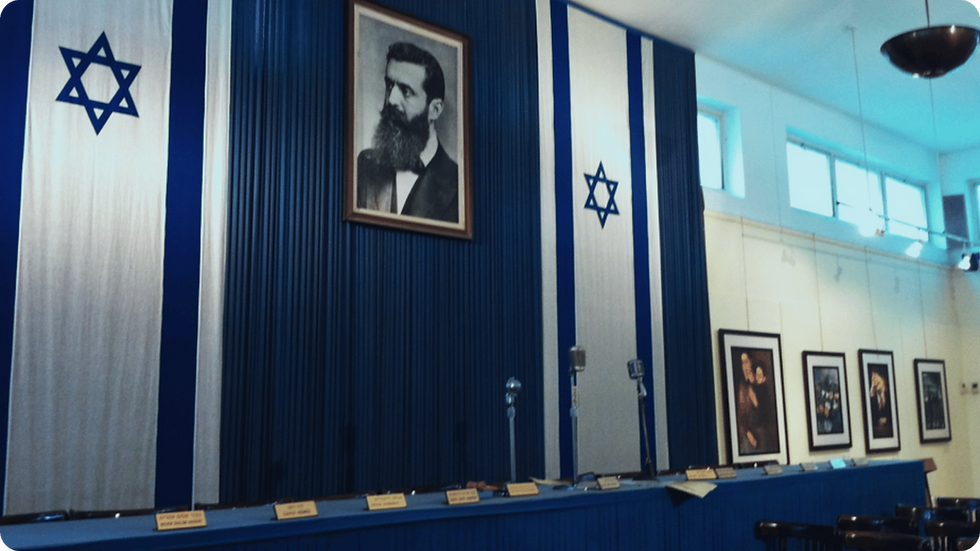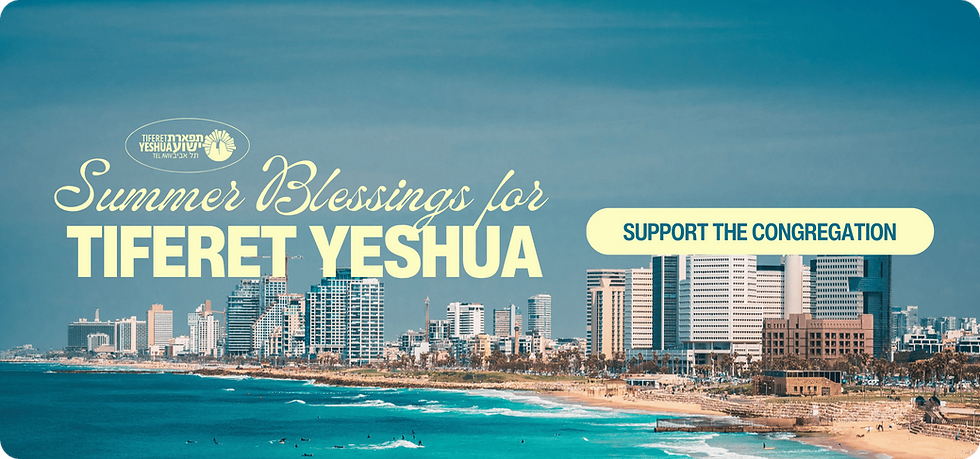The thrilling moments of Israel’s independence on May 14, 1948
- Ron Cantor

- Aug 1, 2025
- 5 min read

In Genesis 1948: The First Arab-Israeli War, journalist and historian Dan Kurzman provides a vivid and well-documented narrative of the tense and momentous days leading up to the Declaration of the State of Israel. I discovered this book long before Kindle and grabbed a copy out of the Beth Messiah library in Rockville, Maryland, where I served as a pastor. I hope they’ll forgive me as I’ve never returned it. Kurzman, with hundreds of interviews, wrote the history book as if it were a novel.
The final week before May 14, 1948, was marked by a whirlwind of diplomatic urgency, political debate, and existential uncertainty, both within the Yishuv (the Jewish community in Palestine) and in foreign capitals—especially Washington, D.C. Humiliated, the British would be leaving Palestine on May 15. Understand that Palestine was not a nation and never has been. It was a region of the Middle East under the control of the Ottoman empire until the end of World War I. The Allied nations asked Britain to oversee “British Mandate Palestine,” with its Arab population and growing Jewish community. Great Britain had recently released the Balfour Declaration, which promised to create a Jewish homeland in ancient Palestine. At the time, everyone there was a Palestinian—Jews, Arab, and Christians—as it had no ethnic connection whatsoever, just geographic.
The Final Countdown: May 14, 1948
Kurzman describes how Jewish leaders—particularly David Ben-Gurion (Israel’s first Prime Minister)—were under immense pressure to declare a state before the British Mandate expired on May 15, yet they faced significant opposition. In November 1947, the UN had voted and approved the creation of both a Jewish state and a new Arab state on 20% of historic Palestine. The other 80% had already been given to the new nation of Jordan (the actual Palestinian Arab state!)
U.S. State Department officials were advising caution and pushing other options than the declaration of a Jewish state. But the soon-to-be-PM Ben-Gurion, resolute and unshakable, declared:
“It is not for the United States to decide whether we should declare a state. That is a decision only we can make.”
Ben-Gurion understood that this was a unique moment in modern history, with the British leaving and no other government taking over, declaring statehood was the path forward for the Jewish people. Keep in mind, in the previous decade, 6 million Jews were murdered by Hitler. The only possibility for security was a Jewish state.
The Naming of the State
As the moment of independence approached, one crucial issue remained unresolved: what to name the new country. Kurzman recounts the debate among the Provisional Government leaders. Several names were considered:
• Judea
• Zion
• Eretz Yisrael (“Land of Israel”)
Ultimately, the name “Medinat Yisrael” (State of Israel) was chosen on May 14, just hours before the Declaration. The name “Israel” was selected for its historical continuity, referencing the biblical patriarch Jacob, whose name was changed to Israel, and for its broad, unifying symbolism that would resonate with both religious and secular Jews.
In the section below, you’ll see how comical the issue of the name was on the day of independence.
Truman’s Recognition: A Diplomatic Cliffhanger
Kurzman offers a gripping account of the last-minute lobbying efforts in Washington:
Clark Clifford, President Truman’s aide, played a pivotal role in advocating for immediate recognition. Early that morning on May 14, Truman confessed to Clifford that he could not stop thinking about Chaim Weizman, the chief advocate for a Jewish state, who met with him in March, pleading for him to give the Jewish people a state.
Clifford responded boldly, “Mr. President, if you’re going to recognize the Jewish state, you must do it immediately — today — or you will never be able to do it.”
The State Department, especially Secretary George Marshall, was opposed to recognition, fearing it would antagonize the Arab world and destabilize the region. George Marshall was considered the most powerful Secretary of State in the history of America, given that Truman was a VP who only became president because of Roosevelt’s death, and Marshall had led the reconstruction of Europe after the war. He told Truman that if he recognized Israel, he would not even vote for him in the coming November election.
Clifford argued forcefully that recognizing Israel was morally just. After the unimaginable suffering that the Jewish people endured, it would be unconscionable not to grant them their own state. Clifford went out, and courageously, Truman recognized the State of Israel. Just 11 minutes after Ben-Gurion declared independence at 4:00 PM Tel Aviv time (9:00 AM EST), the White House released a statement:
"This Government has been informed that a Jewish state has been proclaimed in Palestine, and recognition has been requested by the provisional government thereof. The United States recognizes the provisional government as the de facto authority of the new State of Israel."
However, when the initial request for recognition came from the Jewish agency in Washington, they still did not know what the name of the new country would be. That’s why it says, “Jewish State.” A courier was delivering the formal request to the White House that morning, when the name of Israel was announced. Eliahu Epstein, rushed off to the White House to intercept the courier. He crossed out Jewish state and wrote in State of Israel. Truman did the same thing on official letter of recognition.

Sadly, Palestinian activists have fraudulently claimed that Truman crossed out the Jewish state, because he was denying the Jewish nature of the new nation. Of course, that is absurd, because the Jewish Eliahu Epstein, the official representative of the Jewish state, is the one who initially crossed it out.
4PM on Friday
This was the only time that the full cabinet came together in the days and weeks leading up to independence. It was very important to make sure that in the event of a successful attack on the leadership there would be survivors. However, an exception was made as they gathered in the home of former Tel Aviv mayor, Meir Dizengoff, which had become an art gallery.
As I shared last week, our congregation meets every Friday in the same city at the same time. No one thought of that when we changed from meeting Saturday morning to Friday at 4, but I believe it was prophetic. Only 250 people were invited to watch the full cabinet sign the independence document, and everyone was sworn to secrecy—of course a massive crowd showed up to celebrate, revealing that the secret was out.

Today, it is called Independence Hall, and it looks just as it did in 1948.
Tiferet Yeshua
Our congregation is a lighthouse to the people of Tel Aviv. By the time you get this, we will have just ended the weekly gathering, seven hours ahead of EST. We are seeking to raise $70,000 by the end of the summer. Messiah’s Mandate, thanks to your amazing generosity, is the largest donor to the congregation monthly.
Please consider a special gift this month for Tiferet Yeshua. Your partnership will help Jewish people hear the good news and enable young Messianic Jews to be discipled. Thank you so much for joining us.















Comments